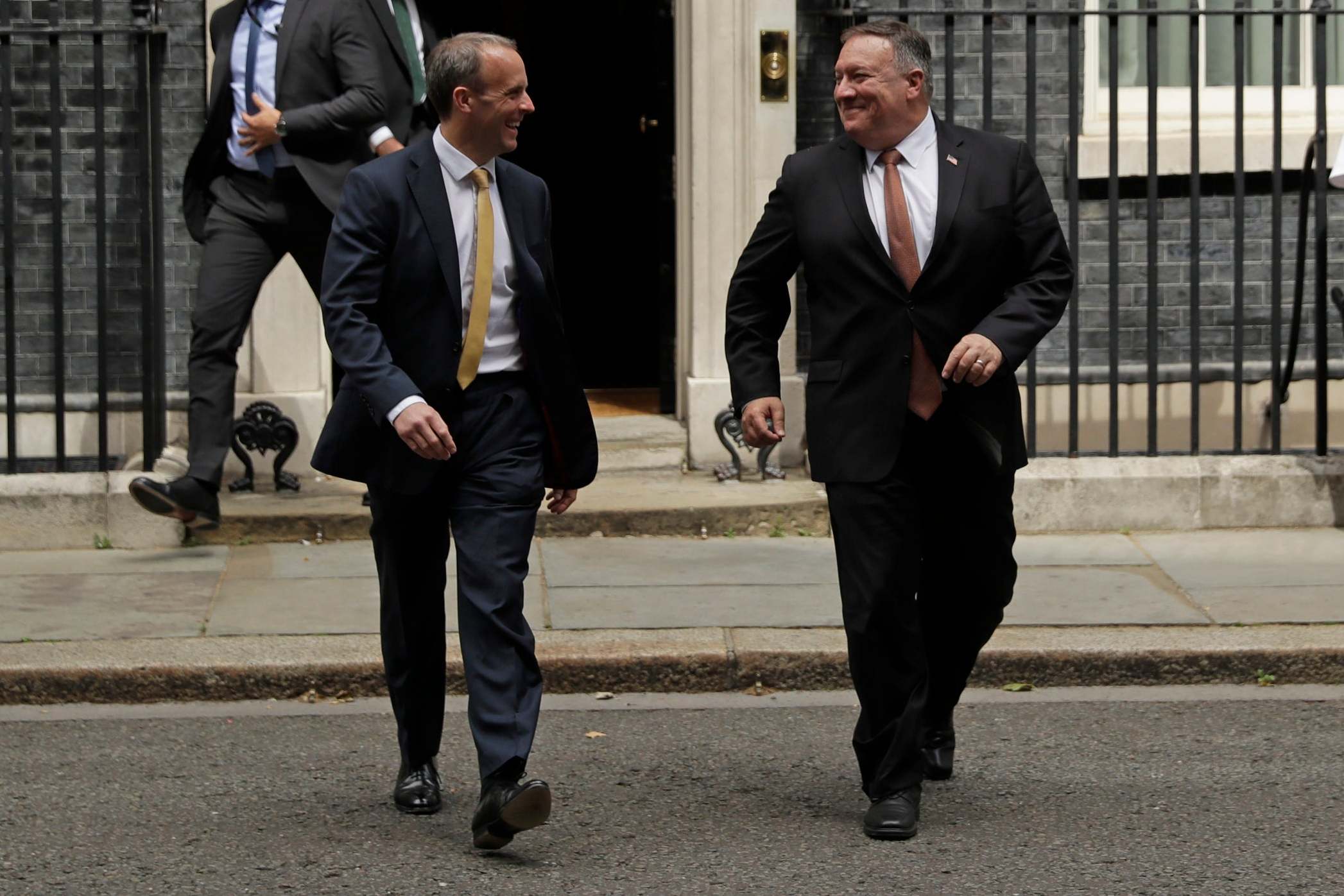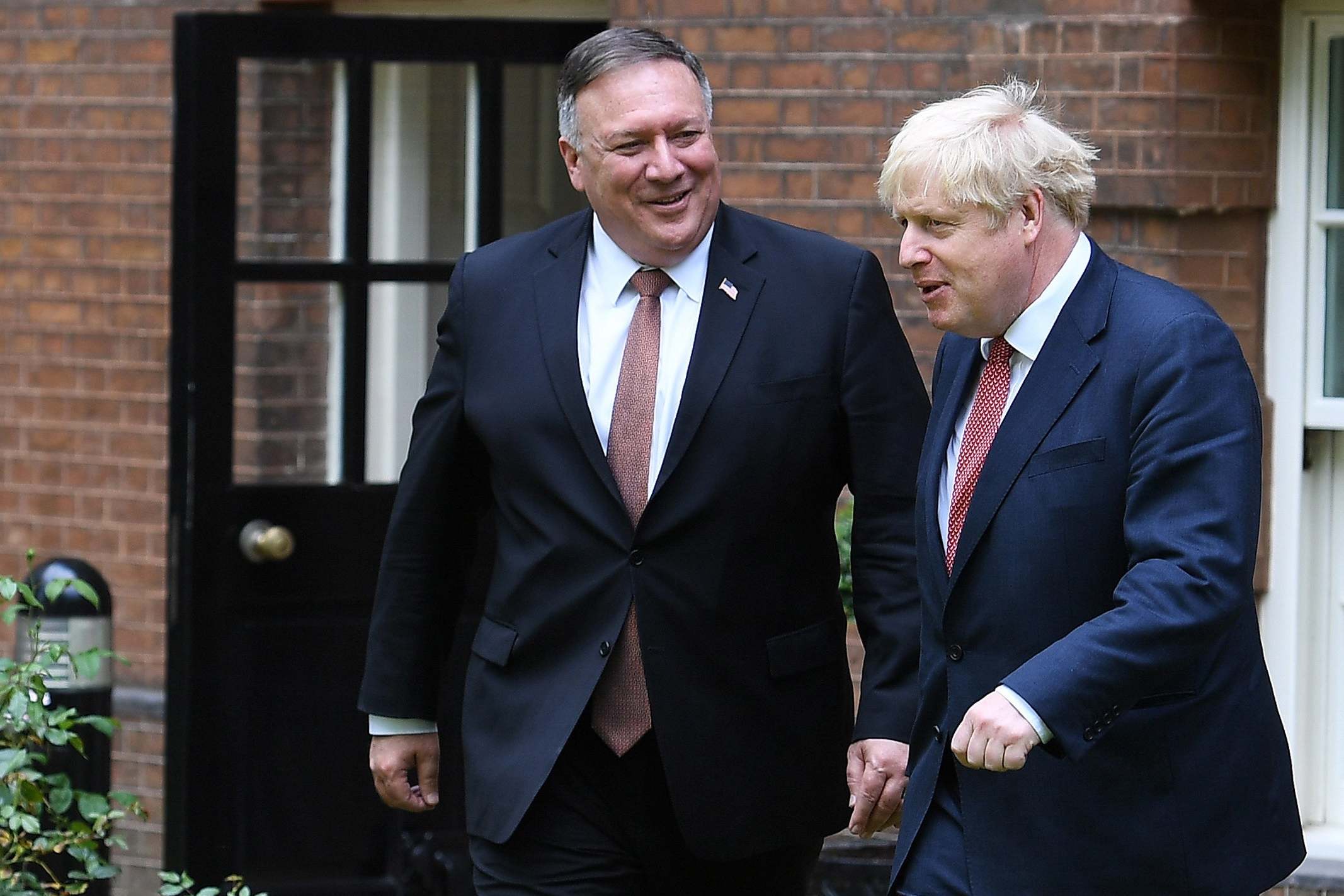Why the ‘special relationship’ won’t improve Britain’s Brexit prospects
However loyal and aligned to American objectives the British government is, there is no necessary linkage to trade and economics, writes Sean O'Grady


It was considerate of the US secretary of state, Mike Pompeo, to tweet the magic term “special relationship” as he landed for his talks with the prime minister and the foreign secretary. It probably doesn’t mean that much to the Trump administration, and most Americans are probably unaware of its existence, but it means a great deal to the British diplomatic and political establishment.
It is certainly true that the UK and US, even in the era of Boris Johnson and Donald Trump, share certain values and have many interests in common. It was poignant that Mr Pompeo arrived just as the much-delayed Russia report was published, reminding all concerned (if it were needed) that the Russians enjoy toying around with the democratic processes of those they think of as rivals or enemies, and indeed that they are not fussy about which side they choose and are happy to change sides if they think it suits their national interest.
America and Britain have both experienced such meddling, though Washington has been more effective than Whitehall in investigating it. Both states have also experienced the malign effects of Russian espionage on their own territory, and been fighting low-level proxy wars with Russia’s allies abroad, most lethally in Syria.

Still, much of the current focus is on China rather than Russia, and no doubt Mr Pompeo will be delighted that the British government has set back its 5G roll-out years by banning Huawei’s involvement. America has long asked Britain to choose between the “special relationship” with the US and the “golden age” with China.
For a time Mr Johnson tried to have his cake and eat it, characteristically, but he has now bowed to pressure from the Trump administration and from his own Sinosceptic backbenchers. Mr Pompeo has made a point of meeting the Conservative China Research Group, presumably to give them his personal thanks.
America and Britain will also work together, with other allies, on behalf of the persecuted Uighur Muslims, the increasingly victimised people of Hong Kong, and China’s small neighbours nervous about its ambitions in the South China Sea. Even if primarily motivated by America’s superpower rivalry with China, those are still ethical foreign policy priorities that command wide support.
Yet however loyal and aligned to American objectives the British government is, there is no necessary linkage to trade and economics. The Trump administration is, after all, an America First administration, which doesn’t really believe in the traditional concept of free trade.
In particular, it is difficult to imagine President Trump abandoning the interests of American farmers just because the British are fussy eaters, for example. Non-discriminatory access for American produce is a traditional demand from US trade negotiators, and indeed is a feature of their discussions with China. In short, President Trump, who has a zero-sum approach to international trade, will be seeking a deal with the UK that reduces Britain’s healthy trade surplus with America.
Of course, come November the British might be looking at a change of leadership in America and a return, under Joe Biden, to the kind of stance on trade adopted by President Obama. That should be good news for Britain, and a more internationally-minded Biden White House that supports Nato and the UN would also be useful in dealing with the likes of Russia and China.
But, again, the political mood in America is one of suspicion of free trade deals that are not obviously and immediately advantageous to the United States. It is not obvious that, simply in terms of trade, the UK would be much better off with a new president in November; in most other respects Britain will find fresh leadership more to its taste.
Join our commenting forum
Join thought-provoking conversations, follow other Independent readers and see their replies
Comments